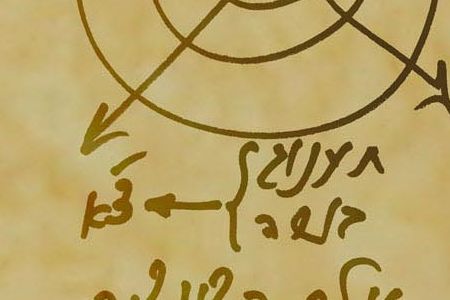Leviticus, 16:1-18:30—19:1-20:27
This Week’s Torah Portion | May 04 – May 10, 2025 – 6 Lyyar – 12 Lyyar, 5785
In A Nutshell
The portions, Aharei Mot (After the Death) and Kedoshim (Holy), are connected. In the portion, Aharei Mot, following the death of Aaron’s two sons—Nadav and Avihu—the Creator details before Moses various rules concerning the way Aaron may approach the Holy in the tabernacle: it requires offering several sacrifices. Aaron must choose between two male goats, one to be sacrificed as a sin offering, and the other to be sent to the desert as a “goat to Azazel.”
The portion also details the prohibition to slaughter for food without bringing an offering to the tent of meeting. The Creator instructs Moses to command the people not to follow the ways of the Egyptians and the Canaanites, and not to obey their rules. At the end of the portion the Creator tells the people of Israel not to be defiled by all the impurities that the nations that dwelled in the land of Canaan before them did because if they did, the land would repel them.
In the portion, Kedoshim (holy), the Creator says to the children of Israel through Moses: “You shall be holy for I the Lord your God am holy” (Leviticus, 19:2).
The portion details many different commandments between man and God, between man and man, and some that concern offering sacrifices. The portion also deals with fearing Mother and Father, observing the Sabbath, and the prohibition on idol worship. Some of the Mitzvot (commandments) relate to the land of Israel, the land of Canaan, the tithing, fruits of the tree, idol worship, and other laws.
The portion ends with a complete prohibition on incest and adultery, which are punishable by death. The Creator commands the children of Israel to keep the laws when they arrive at the land of Israel, and refrain from what they did while in Egypt. They must separate between pure and impure beasts, and, likewise, the Creator will separate between Israel and the rest of the nations. This is how they will be Holy to Him.

Commentary by Dr. Michael Laitman
Most people believe that the Torah speaks of this world, that it is full of physical actions and descriptions of animals, people, and objects, rules of social conduct, what is permitted, and what is forbidden. We either forget, or have never known that this world is but a replication of the spiritual world.
Continue reading “Aharei Mot (After the Death) — Kedoshim (Holy) Parsha – Weekly Torah Portion”
